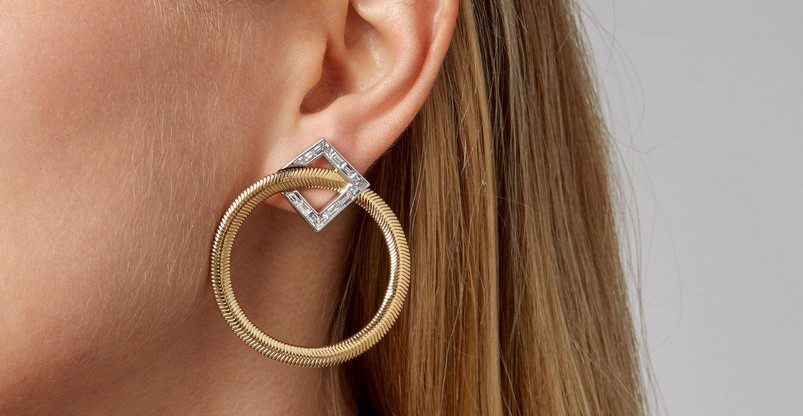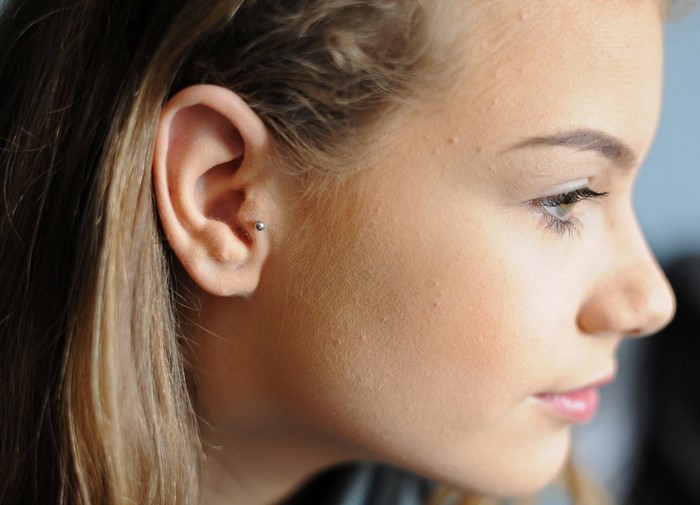There are some questions you might have when buying silver earrings. First, make sure that you know the type of metal you are purchasing. Nickel is one of the most common metals to cause an allergic reaction, and it’s commonly mixed into alloys. You may not even be able to tell whether or not a piece contains nickel because nickel is so common. Many of the alloys made of sterling silver and gold contain nickel. Also, you should avoid buying plated metals, as they typically contain base metals and can cause skin reactions.
Sensitive ears are a nuisance, so you’ve taken to earrings made of sterling silver. Sterling silver has the advantage of being affordable and hypoallergenic; it’s even easier on your ears than gold. But when it comes to earrings, you may discover that even sterling silver earrings cause irritation or pain even after you’ve already put them in.
Nickel
If you have sensitive ears, you may be wondering, “Do silver earrings hurt the ear?” This common question may be confusing and baffling, but the answer to this question depends on the type of metal used in the earring. The most common metal to cause an allergic reaction is nickel. While nickel- free earrings are available, they can still hurt your ears. The best bet for sensitive ears is to buy earrings made of gold, platinum, or silver. These metals are the best options, as they contain the least amount of nickel.

Plated metals
It is best to choose jewelry made of pure gold or silver. If you are allergic to nickel, it is better to avoid wearing jewelry with this metal. It can also harm your ear. Fortunately, there are many hypoallergenic alternatives, such as surgical steel. These metals are durable and comfortable to wear. They are also good options for people with sensitive ears. In general, the best choice is to wear earrings that are 925 sterling silver.
Surgical stainless steel
Surgical stainless steel earrings are designed to not hurt the ear. Stainless steel is the same grade of metal that doctors use during surgery. Surgical steel jewelry is manufactured carefully and in close contact with the body. This ensures that there is no irritation or buildup to cause discomfort. The earrings can be cleaned when necessary. This jewelry is a great choice for those who are prone to infections. In addition, surgical steel jewelry is easily sterilized.
Rhodium
If you’re considering buying a pair of silver earrings, you might wonder how rhodium works. Rhodium is a hypoallergenic metal that doesn’t contain nickel, making it a good choice for those with nickel allergies. It is also non-toxic, making it an excellent choice for those with sensitive skin or newly pierced ears. The good news is that rhodium doesn’t hurt your ear, but it’s also more expensive.
18k or 24k gold
When you purchase a pair of gold earrings, it is important to determine the type of metal you are purchasing. Typically, 24k gold is bright yellow, while 18k gold has a broader spectrum of colors, including brown, black, and red. 18k gold is composed of copper, nickel, and gold, and is used in jewelry making more often than pure 24k. While 18k gold jewelry is not scratch-resistant, it is still preferred by many jewelry lovers.
Platinum
Whether you’re a lover of shiny sterling silver earrings or you’re looking to treat yourself to a new pair, the question of “do silver ears hurt the ear?” may seem like a simple one. While sterling silver is inexpensive and often shiny, they can also cause discomfort and irritation. Here are three reasons why silver earrings might hurt your ear. These metals are known to be soft on their own, which means that they’re commonly combined with other materials to make them more durable.

925 sterling silver
Many people are concerned about the safety of pierced ears and want to wear silver earrings made of 925 sterling silver. While the silver may look nice, you should check if they will cause pain or irritation to your ears. If you have sensitive ears, you may want to avoid using gold -plated sterling silver earrings as the post may contain nickel. If you are unsure whether or not your earrings are safe, try a nickel-free alternative first.
Flat-back earrings
There are some tips to take care of your flat-back silver earrings to keep them from causing any pain. The first thing is to take off the earrings gently. If you don’t take them out carefully, you can end up with an infection in the ear. You can use a safety pin or pliers to do this. Make sure that you do not force the removal because it will cause pain.
Silver may be a reasonably priced metal, but that doesn’t mean it’s universally hypoallergenic. In fact, many people have reported irritation or a rash when wearing silver earrings. The best thing to do is talk to your doctor before trying silver earrings, and see whether or not they’re right for you.


